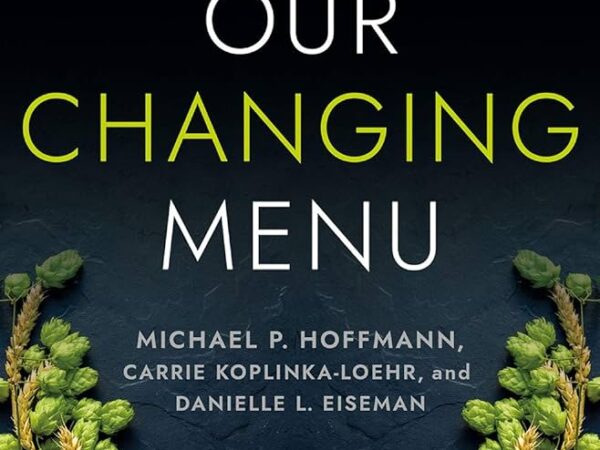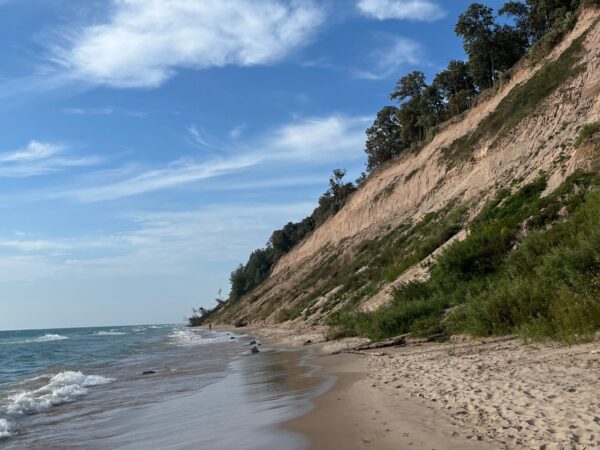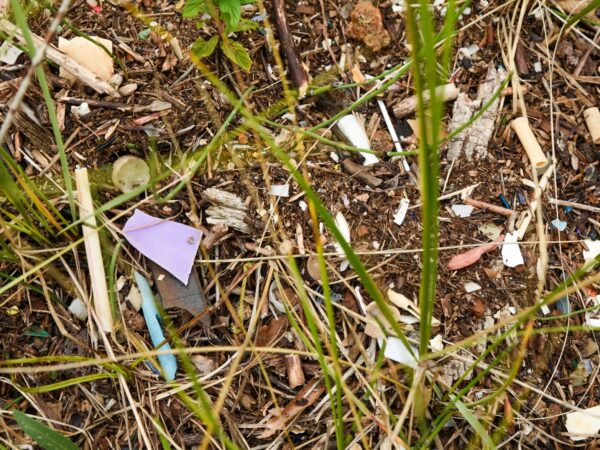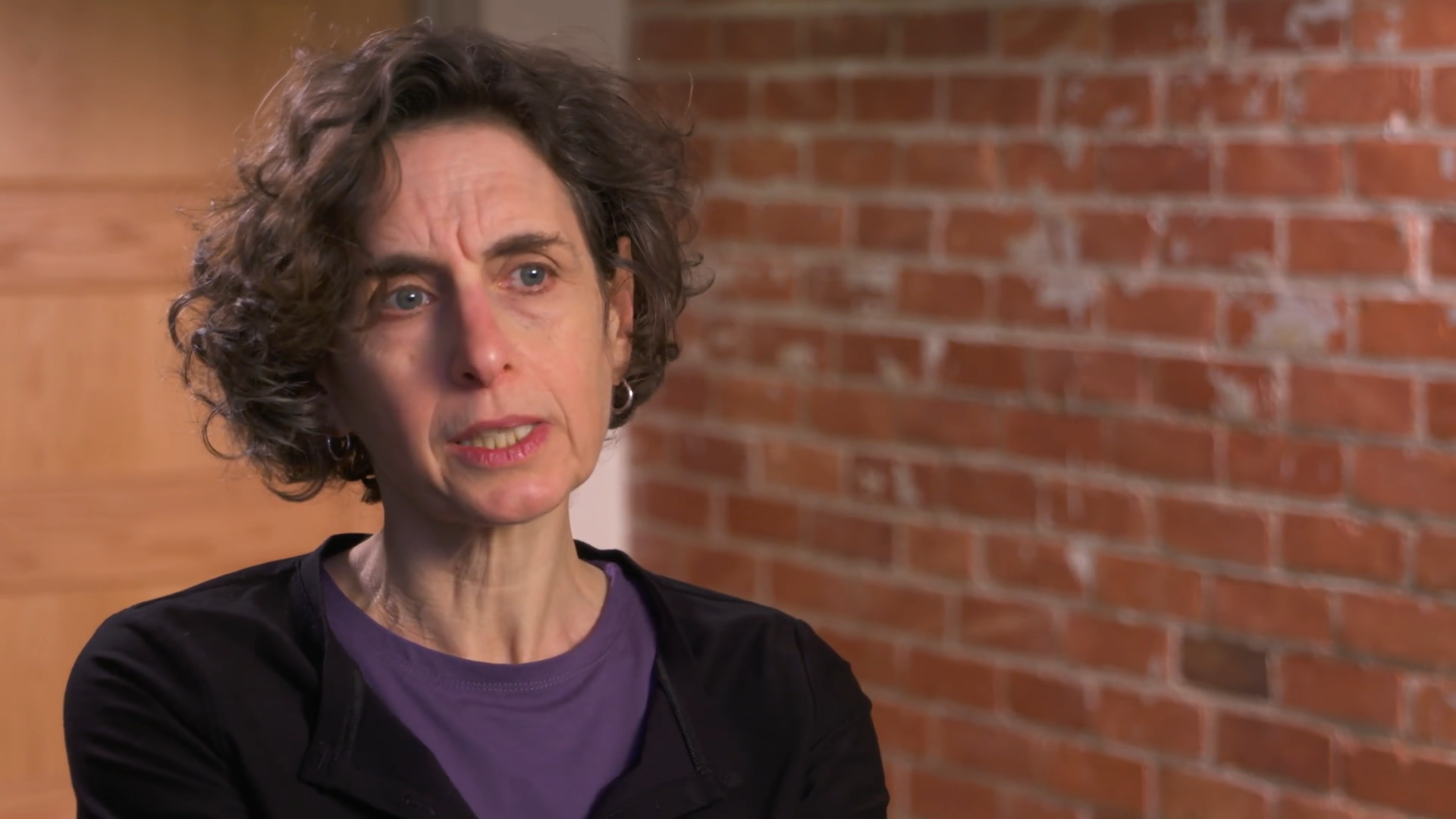
For Elizabeth Kolbert, the path to writing a book on our penchant to control nature started with a guided tour on the infamously reversed Chicago River.
Kolbert wanted to get a close look at the Asian carp issue and talk to the people on the front lines of efforts to repel the carp advance to the Great Lakes.
Other stops on her research itinerary included the disappearing Louisiana coast, the Great Barrier Reef and Greenland.
The result of the extensive research and travel was Under A White Sky: The Nature of the Future, originally released in 2021 and in paperback in April 2022.
Kolbert, a Pulitzer Prize winner for The Sixth Extinction, has been a staff writer for the New Yorker since 1999 and is the author of Field Notes from a Catastrophe: Man, Nature and Climate Change.
Great Lakes Now’s Gary Wilson recently spoke with Kolbert in advance of an appearance she was making at Northwestern University in Evanston on the Lake Michigan shore.
Kolbert discussed why the Asian carp issue was perfect for the book’s opening chapter, how humans end up “chasing their tail” when trying to control nature and the unaddressed fundamental problems with EV’s related to limiting the effects of climate change.
The interview closes with Kolbert explaining why she differs with other environment authors who end their books with reasons for optimism. ”I’d like to end that way too,” she says, “but I can’t.”
The interview was recorded, transcribed and edited for length and clarity.
Editor’s note: Kolbert’s book and therefore this interview use “Asian carp” as the fish were called when the book was released in early 2021. They have since been labeled “Invasive carp” by the U.S. Fish and Wildlife Service.
Great Lakes Now: The opening chapter of Under a White Sky starts with you on a guided cruise through the Chicago Area Waterways System to learn more about the decades-long advance of Asian carp toward the Great Lakes. You traveled the world to do research for the book. Why did you lead with the Great Lakes, Asian carp issue?
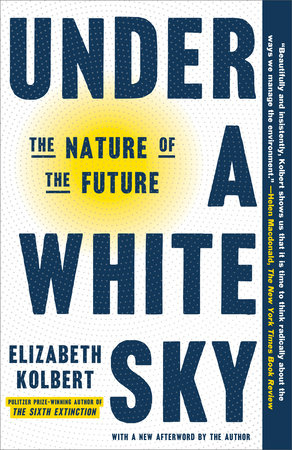
Under A White Sky: The Nature of the Future. (Photo courtesy of Crown Publishing)
Elizabeth Kolbert: I really saw this story as a fable, the stories in the book are all sort of fables, in a way. The story of the Asian carp and really the story of the Chicago River and its treatment, or mistreatment by humans had a wonderfully clear story line.
The first step in the story is that the river has been reversed which is this remarkable feat at the start of the 20th century. Then we get to the end of the 20th century and we realize that there are unintended consequences of this and that is creating this opening between these two huge drainage basins which becomes particularly relevant as both of these systems become highly invaded water systems. Then we decide ok, after having reversed the river, now we’re going to electrify part of it and that double motion is really what the book is about, interfering in a system then deciding there are consequences you don’t like.
So, reaching for new interventions and that had already been done in the Chicago River so that seemed like a great example to start the book with.
GLN: In that opening chapter, you describe the early 1900’s reversal of the Chicago River as an example of our penchant to control nature for human purposes. The reversal upended the hydrology of two-thirds of the country, you wrote. Then you say electrifying part of the river to repel Asian carp is “the control of the control of nature.” Can you expand on that?
EK: The book in a lot of ways owes a lot to John McPhee’s, The Control of Nature published in 1989, which is one of my favorite books. That book is really about human efforts to control nature. He is very skeptical of that and my book takes off on the premise, unfortunately for better or worse, we do control nature. We don’t always do it in ways we intended and if control is not the right word maybe dominate is the right word.
Now, everything we do to try to intervene in a system is intervening in a system that’s already been remade by us. So we’re chasing our own tail. We find ourselves wherever we go that we’re dealing with impacts of our own actions.
GLN: Since 2010 in addition to the 2002 electrification of the river, the emphasis to repel the carp advance has been on expensive infrastructure projects. An $18 billion Army Corps of Engineers plan went nowhere and the most recent plan will cost approaching $1 billion and will reduce the risk, according to the Corps. Do these big-ticket attempts to control nature make sense or is there an inevitability that the carp will enter the Great Lakes?
EK: That’s a really good question that I don’t feel competent to answer. The book identifies this pattern of reaching that kind of a solution. I guess the suggestion is that eventually these things don’t work, they’re not permanent fixes and by that logic the carp will eventually be in the Great Lakes. But the question of whether it makes sense as a stop gap is hard for me to answer.
GLN: You chronicled a past attempt to make Asian carp palatable for public consumption in the U.S. The state of Illinois recently launched another rebrand of the carp as “Copi’ and the selling point is, Choose Copi: Eat Well and Do Good. Michigan and environmental groups dismissed the Copi initiative. What do you make of these “if you can’t beat’em, eat’em schemes.”
EK: I’m no expert on eating invasive species but I think it’s basically a well-intended effort. Right now the Illinois DNR is spending a lot of money and expending a lot of effort to catch these fish that are then basically turned into fertilizer. In a world where you have almost 8 billion people to feed, that’s probably a waste of very valuable protein.
On trying to rebrand the fish, I mean when humans take a liking to something, for better or worse, we do have the capability of cutting into their numbers.That was shown with Blackened Redfish when Paul Prudhomme came up with this recipe that suddenly made redfish very popular. They were practically fished to extinction. So, I don’t know that the effort will work, but I see the logic of it.
GLN: Do you worry that if it is successful that it creates demand and to fill the demand you have to have more Asian carp?
EK: That’s a worry definitely for the future because I’ve been out with these fishermen and let’s just say there’s a lot of carp to be eaten before we run into the problem that there’s too much demand and we have to try to fill it. That’s definitely an argument that’s made against trying to popularize invasive species, that you then create a market for them and you have to fill it. But in the case of Asian carp you could go a long, long way before you found you were running short.
GLN: On to climate change, a Detroit auto industry response is replacing vehicles like the best-selling Ford F-150 pickup that weighs 5,000 pounds with an electric version that weighs 6,000 pounds. New York Times columnist Farhad Manjoo says the problem is our fixation with cars for transport no matter the fuel source and calls this a “very American way” of dealing with climate change. That we can combat climate change without sacrifice. Do you agree with Manjoo?
EK: Yes, basically. If you look at the Inflation Reduction Act, which was just passed which is being hailed as a big milestone in the effort to limit climate change, which I think it is, but it offers a lot of tax breaks for electric vehicles without addressing the fundamental problem which I agree with Farhad Manjoo, is car culture, a country built around everyone owning basically a car per adult.
There are a tremendous amount of resources that go into that even if the cars are running on clean energy. Even if the grid they’re plugged into is clean there’s still the mining and the making of all that steel. In electric car batteries there are a lot of metals that are hard to get so we will enter into the fight over lithium for batteries and where it comes from. There will be mining of the bottom of the sea for cobalt and other metals that are needed. So I do agree that we should be re-thinking car culture.
GLN: You referred to the Inflation Reduction Act, and related to its name, what does it say about our commitment to meaningful greenhouse gas reduction when the most important action we’ve taken to date has to be named inflation reduction to sanitize it for public acceptance?
EK: It unfortunately speaks volumes. That was a very clear decision not to call it the fighting climate change act or the greenhouse gas reduction act and that is because if you ask people, voters, what is top of mind and I’m not speculating, I’ve read the polls…
It’s inflation, not climate change.
GLN: In the Afterword to Under a White Sky you resist following the path of other environment authors who you say close their books with “why there’s reason for optimism.” Are we to assume you’re pessimistic when it comes to climate change?
EK: Yes, that’s a fair inference. The fact of the matter, not an opinion, is that a lot of climate change is already happening. We’re seeing the effects of it, we saw it this summer and we’re going to keep seeing it. On reducing emissions, I think there’s a misapprehension out there that reducing emissions is going to solve the problem. Reducing emissions just means it takes longer to heat things up. Until we get to net zero globally, the world is going to continue to warm and we will continue to see higher temperatures and all that goes with that.
This is not like a problem that’s ever going away in the lifetime of any alive today. Now, that doesn’t mean that there aren’t things that we can do to ameliorate the situation. To prepare and plan for it, but I am pessimistic we’re going to do what we should.
Catch more news at Great Lakes Now:
Dave Dempsey explores connection between people, dogs and environmental policy in new book
Water Always Wins: “Quietly radical” book makes case for Slow Water
Featured image: Pulitzer prize-winning author Elizabeth Kolbert was featured in the “Writers On Water” series on Great Lakes Now. (Photo Credit: DPTV)


